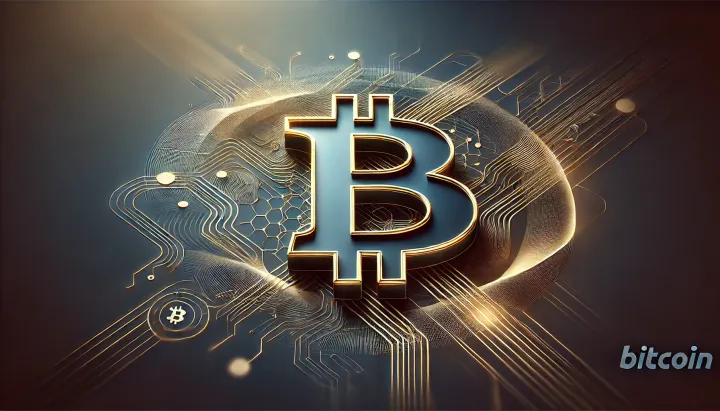Bitcoin as Digital Gold: Preserving Wealth and Building Financial Independence
The November 2, 2024 episode of the Robin Seyr podcast features Russel Coultart, explores Bitcoin’s potential as a vehicle for generational wealth, a hedge against fiat devaluation, and an alternative financial system rooted in digital sovereignty.

- My 'briefing notes' summarize the content of podcast episodes; they do not reflect my own views.
- They contain (1) a summary of podcast content, (2) potential information gaps, and (3) some speculative views on wider implications.
- Pay attention to broadcast dates (I often summarize older episodes)
- Some episodes I summarize may be sponsored: don't trust, verify, if the information you are looking for is to be used for decision-making.
Summary
The November 2, 2024 episode of the Robin Seyr podcast explores Bitcoin’s role as a hedge against fiat instability, a path to generational wealth, and an alternative to centralized financial models. Russel Coultart’s insights draw on his digital transformation background, positioning Bitcoin as “digital gold” and a way to gain financial sovereignty amid concerns over Modern Monetary Theory and fiat devaluation. Key themes include Bitcoin’s demographic expansion, its inflation-resistant potential, and the need for improved education on secure self-custody practices.
Take-Home Messages
- Bitcoin for Generational Wealth: Bitcoin offers an inflation-resistant store of value, securing wealth for future generations.
- Wider Demographic Adoption: Bitcoin is increasingly recognized by older investors, reflecting its shift toward mainstream acceptance.
- Critical Need for Self-Custody Education: As new users adopt Bitcoin, secure storage practices are essential for protecting wealth.
- A Path Beyond Fiat Dependency: Bitcoin provides an option for financial sovereignty, appealing to those concerned about fiat currency’s future.
- Accessible Investment Options: Products like Bitcoin ETFs are enhancing Bitcoin’s integration into regulated financial markets, broadening appeal.
Overview
In the November 2, 2024 episode of the Robin Seyr podcast, Russel Coultart reflects on his experience in the digital music industry, where shifting from physical formats to digital changed the business landscape. Drawing on these parallels, he sees Bitcoin as part of an equally transformative wave in finance, one that enables users to hold a decentralized, inflation-resistant asset. This perspective frames Bitcoin as a tool for long-term wealth preservation, especially in light of growing concerns over fiat currency.
Coultart contrasts Bitcoin’s fixed supply with fiat’s potentially unlimited issuance, citing it as a hedge against inflation and a stable asset for securing wealth. He critiques Modern Monetary Theory (MMT) as unsustainable, positioning Bitcoin as a model of scarcity and decentralized stability. This stance aligns Bitcoin with historical views of gold as a reserve, appealing to those looking for a financial escape from government-controlled currencies.
Coultart highlights an evolving demographic trend, with a rise in Bitcoin interest among older generations. This shift suggests that Bitcoin is becoming less of a speculative asset and more of a recognized store of value. Coultart notes that this growing interest could increase demand for educational resources to help newcomers manage secure self-custody, a critical aspect of safeguarding Bitcoin investments.
Bitcoin’s increasing accessibility is also discussed, particularly through Bitcoin ETFs, which provide an entry point for institutional and traditional investors. Coultart considers ETFs a strategic pathway to wider adoption, potentially encouraging regulatory accommodation and fostering a more integrated financial role for Bitcoin.
Stakeholder Perspectives
- Individual Investors: Concerned with wealth preservation and inflation resistance, many are drawn to Bitcoin for its potential as a secure, long-term investment.
- Regulatory Authorities: Cautious about Bitcoin’s decentralized nature and potential challenges to fiat systems, yet observing its growing integration into traditional finance.
- Financial Institutions: Interested in Bitcoin’s evolving reputation, they see Bitcoin ETFs as a means to offer clients a regulated entry to Bitcoin, strengthening portfolio diversification.
- Bitcoin Educators: Focused on closing knowledge gaps in secure self-custody, especially as newcomers from older demographics begin investing in Bitcoin.
Implications
Bitcoin’s positioning as digital gold signifies an opportunity for investors to secure wealth in an inflation-resistant asset, potentially impacting fiat-dependent financial systems. Coultart’s emphasis on Bitcoin’s scarcity model challenges fiat’s sustainability, posing questions for policymakers regarding the integration of decentralized assets into broader economic strategies. For governments, a balanced regulatory approach may be needed to accommodate Bitcoin’s growth while preserving control over currency systems.
The growing demographic interest in Bitcoin suggests an expanding user base, driving demand for educational resources that facilitate secure ownership. If Bitcoin continues to attract diverse demographics, financial institutions might see a market shift, with traditional assets competing against Bitcoin for a place in long-term wealth preservation strategies. Addressing the need for secure, user-friendly storage solutions can bridge the accessibility gap and help new users confidently navigate Bitcoin ownership.
Future Outlook
As financial markets become increasingly open to digital assets, ETFs and other products may enhance Bitcoin’s role in traditional portfolios, broadening its adoption and acceptance. Regulatory developments will play a critical role in determining Bitcoin’s future, as stakeholders balance innovation with security.
Educators and industry stakeholders have a pressing role to meet the rising demand for secure self-custody resources, ensuring that new users can manage Bitcoin safely. If these educational efforts succeed, Bitcoin may solidify its reputation as a reliable, intergenerational asset and expand its function as a store of value, challenging conventional wealth management models and introducing new standards of financial independence.
Information Gaps
- How can Bitcoin’s adoption impact long-term wealth transfer across generations? Answering this question provides clarity on Bitcoin’s viability as a multigenerational asset. Understanding the legal, financial, and educational implications for wealth transfer can help investors and estate planners approach Bitcoin as a secure, inheritable asset.
- What are the primary regulatory barriers facing Bitcoin, and how might they evolve? This question is crucial for stakeholders anticipating regulatory actions that could affect Bitcoin’s integration into traditional markets. By identifying specific regulatory challenges and potential adaptations, the industry can prepare for sustainable growth.
- How does Bitcoin’s volatility affect its potential as a medium of exchange? Exploring Bitcoin’s price stability concerns directly impacts its functionality as a transactional asset. Insights into managing volatility could reveal pathways for Bitcoin’s utility beyond long-term holding.
- To what extent has Bitcoin proven effective as an inflation hedge in different economic environments? Determining Bitcoin’s performance as an inflation hedge is relevant for investors seeking alternative wealth preservation strategies. Comparative analysis across economic settings can validate its use as a global inflation-resistant asset.
- How does the availability of Bitcoin ETFs influence its adoption rate globally? Investigating ETFs’ influence on Bitcoin adoption provides insight into how traditional financial products can drive mainstream Bitcoin integration. Findings could support regulatory strategies and foster cross-sectoral adoption of Bitcoin.
Broader Implications
Bitcoin as a Store of Generational Wealth
Bitcoin’s position as an intergenerational asset has implications for traditional wealth management, as investors increasingly seek alternatives to fiat-based wealth preservation. As more individuals and institutions adopt Bitcoin, traditional models of wealth transfer will need to adapt to include digital assets, creating a demand for secure digital inheritance mechanisms. This shift could redefine long-term financial planning, with Bitcoin emerging as a cornerstone in diversified, inflation-resistant portfolios.
Inflation Hedge in Global Economic Instability
Bitcoin’s role as an inflation hedge could see intensified relevance as global economies face currency devaluation and inflationary pressures. For policymakers and financial institutions, this growing interest in Bitcoin as a hedge may prompt new regulations aimed at stabilizing fiat while addressing Bitcoin’s influence on traditional markets. If Bitcoin proves resilient in diverse economic climates, it could catalyze a larger shift toward decentralized assets for value preservation.
Expanding Bitcoin’s Demographic Reach
The increase in Bitcoin adoption among older demographics underscores its evolving status beyond a speculative asset, presenting new opportunities for institutional products tailored to secure, long-term holding. This broadening demographic may foster stability within Bitcoin’s market, encouraging financial institutions to develop accessible options like Bitcoin ETFs. As a result, Bitcoin could integrate more closely into retirement planning and mainstream portfolios.
Self-Custody and Security Challenges
With growing interest in Bitcoin, particularly from less tech-savvy investors, there is an urgent need for accessible self-custody solutions that emphasize security without complexity. Stakeholders across the Bitcoin ecosystem could benefit from standardized education on digital asset custody, aligning user practices with security needs. Addressing these custody concerns will support sustainable adoption, ensuring that newcomers can manage their investments confidently.
Regulatory Evolution and Bitcoin’s Decentralized Model
Bitcoin’s decentralized structure offers a unique resilience against restrictive regulations, yet as adoption grows, governments may increasingly intervene to manage its societal impact. Anticipated regulatory shifts could shape Bitcoin’s integration into mainstream finance, balancing the demand for innovation with concerns about financial stability. This regulatory push-and-pull will be crucial in determining Bitcoin’s future role in both national and global economies.



Comments ()